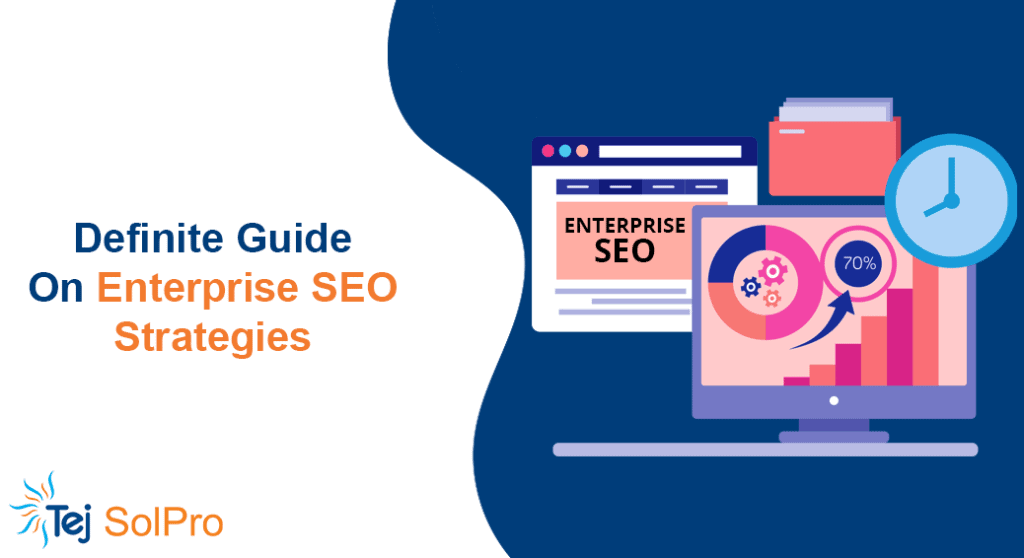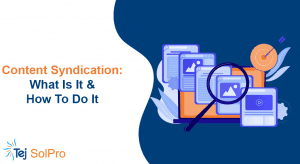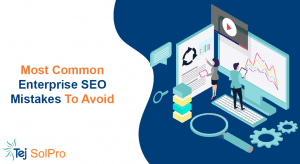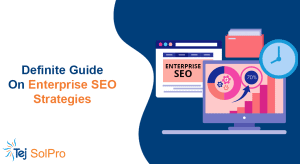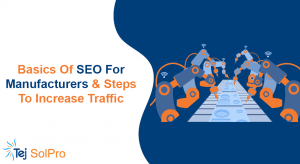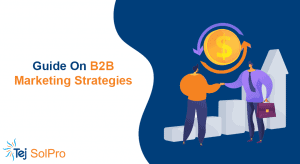Enterprise SEO is no longer just a buzzword reserved for sprawling websites and Fortune 500 companies.
In 2025, it’s the backbone of digital visibility for any large-scale organization aiming to dominate organic search, build brand authority, and fuel revenue growth.
This enterprise SEO guide will help you navigate the new landscape where AI, search intent, and scalable operations are rewriting the rules.
Contents
- 1 What Is Enterprise SEO and Why It Matters More in 2025
- 2 Enterprise vs. Traditional SEO: The Scale and Complexity Gap
- 3 Building a 2025-Ready Enterprise SEO Strategy
- 4 Using AI in SEO Workflows
- 5 Adapting to SGE and Changing SERPs
- 6 Technical SEO for Large Websites
- 7 Content Velocity and Quality at Scale
- 8 Scalable SEO Solutions Using Automation and APIs
- 9 Internal Collaboration and Cross-Department Synergy
- 10 Common Mistakes in Enterprise SEO (and How to Avoid Them)
- 11 When and Why to Hire an Enterprise SEO Consultant
- 12 SEO for Big Companies: Priorities and What Matters in 2025
- 13 Future-Proofing Your Enterprise SEO Strategy
- 14 Final Thoughts and CTA
What Is Enterprise SEO and Why It Matters More in 2025
Enterprise SEO refers to the strategic optimization of large, complex websites. Think thousands (or millions) of pages, multiple business units, global reach, and a need for airtight governance.
In 2025, the stakes are even higher. Google’s AI-driven algorithms, the rise of Search Generative Experience (SGE), and user expectations for personalization mean that only the most sophisticated, adaptable strategies will win.
Enterprise SEO isn’t just about technical fixes or keyword stuffing. It’s about orchestrating scalable SEO solutions that drive measurable business impact across every product, region, and audience segment.
Enterprise vs. Traditional SEO: The Scale and Complexity Gap
Let’s call it what it is: SEO for big companies is a different beast. Here’s how the enterprise SEO strategy stands apart:
| Aspect | Traditional SEO | Enterprise SEO |
| Site Size | Dozens to hundreds of pages | Thousands to millions of pages |
| Stakeholders | Small teams or individuals | Multiple departments, execs |
| Technical Complexity | Basic to moderate | Advanced (crawl budgets, indexation, legacy systems) |
| Content Operations | Manual, ad hoc | Automated, governed, at scale |
| Compliance & Localization | Rarely an issue | Critical (legal, multilingual, brand) |
Enterprise SEO services must account for this complexity, balancing agility with the need for robust processes, cross-team collaboration, and future-proofing.
Building a 2025-Ready Enterprise SEO Strategy
A winning enterprise SEO strategy for 2025 is built on these pillars:
- Scalable keyword research and targeting: Map thousands of queries across products, buyer journeys, and geographies. Use advanced tools to prioritize by intent, funnel stage, and business value.
- Content hubs and clusters: Build topical authority with pillar pages and supporting content that cover every stage of the customer journey from awareness to conversion.
- Technical SEO for large websites: Regular audits, structured data, site speed, mobile optimization, and crawl budget management are non-negotiable.
- Content governance: Style guides, tone, and branding must be enforced across teams and regions to ensure consistency and compliance.
- Localization and personalization: Adapt content for different markets, languages, and user segments to maximize relevance and engagement.
Using AI in SEO Workflows
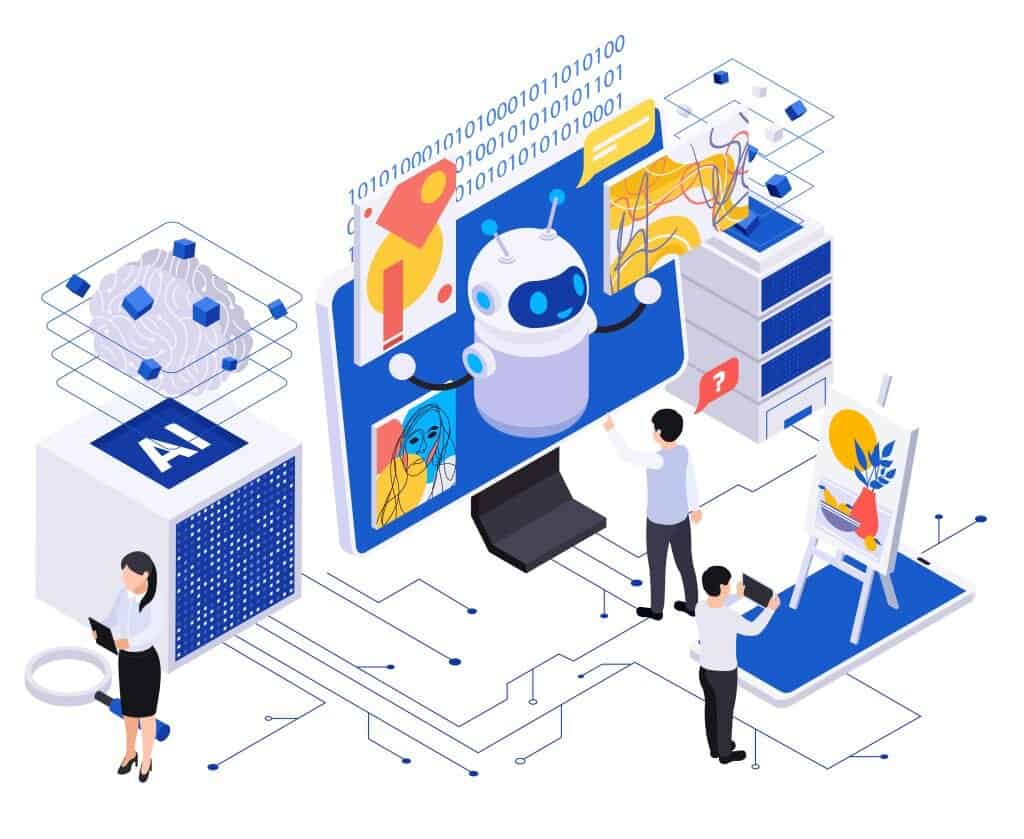
AI isn’t just a buzzword, it’s the engine powering enterprise SEO in 2025. Here’s how AI is transforming workflows:
- Automated keyword research: Machine learning tools surface untapped opportunities and predict trends before they peak.
- Content optimization: AI platforms analyze top-performing pages, recommend semantic keywords (LSI), and help craft content that aligns with user intent and search engine expectations.
- Internal linking and site structure: AI can suggest optimal internal links, improving crawlability and topical authority.
- Performance monitoring: Predictive analytics flag technical issues, traffic drops, or ranking anomalies in real time.
Embracing AI-powered SEO tools (like BrightEdge, SEMrush, Moz, or custom solutions) is now table stakes for any enterprise SEO team.
Adapting to SGE and Changing SERPs
Google’s SGE and AI Overviews have fundamentally changed the game. Instead of ten blue links, users now see AI-generated answers that “fan out” into subqueries, pulling the best content snippets from across the web.
What does this mean for enterprise SEO?
- Passage-level optimization: Google indexes and ranks content passages, not just whole pages. Every section must be semantically rich and self-contained.
- Citation over clicks: Success is now measured by being cited in AI Overviews, not just earning clicks. Brand authority is built by being the source of truth even if users don’t visit your site.
- Personalized results: AI Mode tailors answers to individual users based on their search history and context. Traditional rank tracking is obsolete; focus on coverage and relevance.
- Multimodal content: Text, visuals, and even voice snippets matter. Optimize for all formats.
To win in this new landscape, engineer content for fan-out coverage, passage-level depth, and multimodal representation.
Technical SEO for Large Websites
Technical SEO for large websites is the foundation of any scalable SEO solution. Key focus areas include:
- Site speed: Fast-loading pages are essential for both user experience and rankings.
- Indexability: Ensure important pages are crawlable and indexed; use robots.txt, sitemaps, and canonical tags wisely.
- Crawl budget management: Prevent wasted resources on duplicate or low-value pages.
- Mobile optimization: Responsive design and mobile-first indexing are mandatory.
- Structured data: Use schema markup to enhance visibility in SERPs and enable rich snippets, knowledge panels, and other features.
- Duplicate content: Identify and resolve duplication across URLs, languages, and devices.
Regular technical audits using both automated tools and expert reviews are essential to maintain site health at scale.
Content Velocity and Quality at Scale
Enterprise SEO isn’t just about producing more content, it’s about producing the right content, at the right time, and at the right quality.
- Content pillars and clusters: Organize content into hubs that cover broad topics and deep subtopics, supporting both user journeys and SEO goals.
- Quality assurance: Implement editorial guidelines, review processes, and regular content refreshes to maintain accuracy and authority.
- Localization: Adapt content for different languages and regions, ensuring cultural relevance and compliance.
- Updating legacy content: Refresh outdated pages to maintain rankings and relevance.
AI-powered content tools can help with ideation, optimization, and even automated content creation but human oversight is critical for quality and compliance.
Scalable SEO Solutions Using Automation and APIs
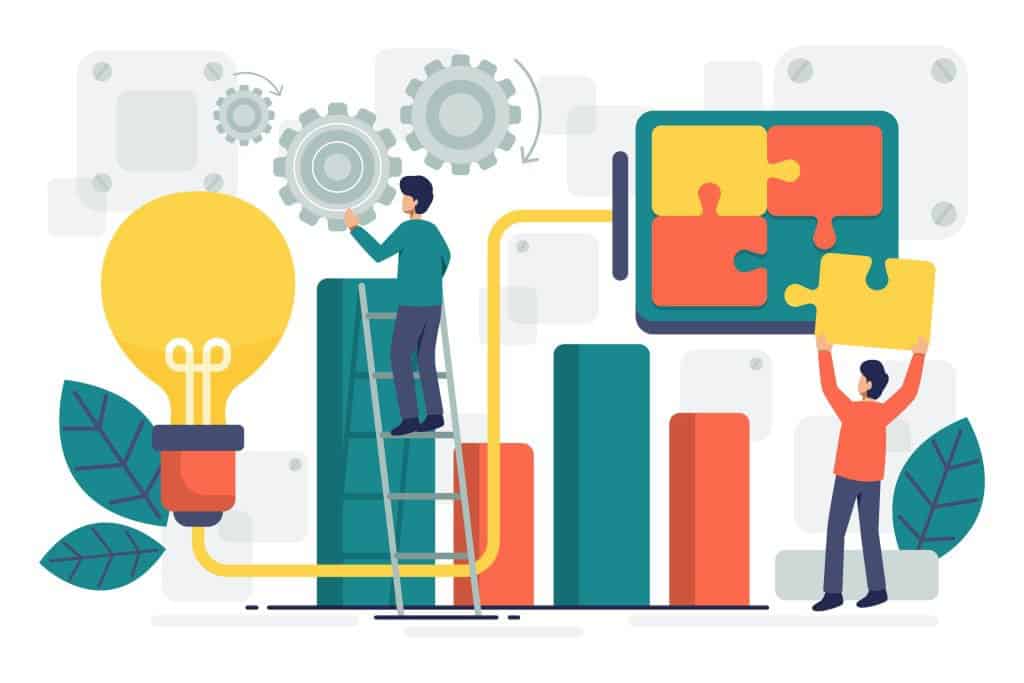
Manual SEO simply doesn’t scale for big companies. Automation and APIs are your best friends:
- Automated reporting: Use APIs to pull data from analytics, search consoles, and SEO platforms for real-time dashboards.
- Bulk updates: Automate meta tag changes, redirects, and schema updates across thousands of pages.
- Content workflows: Integrate CMS, translation, and approval processes to streamline content ops.
- Link management: Monitor and manage internal and external links with automated tools.
The goal: free your team from repetitive tasks so they can focus on strategy, innovation, and growth.
Internal Collaboration and Cross-Department Synergy
SEO for big companies isn’t a siloed discipline, it’s a team sport. Success depends on:
- Cross-functional collaboration: SEO must work with dev, content, UX, legal, and compliance teams.
- Clear governance: Define roles, responsibilities, and escalation paths for SEO issues.
- Education: Train stakeholders on SEO best practices and the impact of their work on search performance.
- Feedback loops: Regularly share wins, insights, and learnings to foster buy-in and continuous improvement.
The most successful enterprise SEO strategies are those that break down silos and embed SEO thinking across the organization.
Common Mistakes in Enterprise SEO (and How to Avoid Them)
Too many big brands fall into the same traps. Here’s how to avoid the most costly enterprise SEO mistakes (rewritten and integrated from the referenced blog):
- Ignoring technical debt: Large sites accumulate legacy issues—broken links, duplicate content, slow pages that quietly erode rankings. Regular audits and proactive fixes are essential.
- Siloed teams: When SEO, content, and dev teams don’t collaborate, critical issues fall through the cracks. Foster cross-team communication and shared goals.
- Over-reliance on automation: Automation is powerful, but unchecked scripts or bulk changes can cause massive errors. Always combine automation with human oversight.
- Neglecting compliance: Legal and regulatory missteps (especially with multilingual or localized content) can lead to penalties or brand damage. Build compliance checks into every workflow.
- Chasing vanity metrics: Don’t focus solely on rankings or traffic. Align SEO KPIs with business outcomes like leads, revenue, and brand impact.
When and Why to Hire an Enterprise SEO Consultant
Sometimes, even the best in-house teams need outside expertise. Here’s when hiring an enterprise SEO consultant makes sense (rewritten from the referenced blog):
- Complex technical challenges: If your site faces persistent crawl, indexation, or migration issues, a consultant brings specialized skills and fresh perspective.
- Stalled performance: If organic growth has plateaued, an external audit can uncover blind spots and new opportunities.
- Scaling content ops: Consultants can help design workflows, governance, and automation to support rapid content expansion.
- Change management: Mergers, rebrands, or tech stack overhauls require expert guidance to avoid costly SEO setbacks.
- Training and upskilling: Consultants can train your teams on the latest strategies, tools, and compliance requirements.
Choose a partner who understands your industry, has a proven track record with big companies, and can work seamlessly with your internal teams.
SEO for Big Companies: Priorities and What Matters in 2025
The priorities for enterprise SEO in 2025 are clear:
- Personalization: Deliver tailored experiences based on user intent, behavior, and context.
- Entity optimization: Build authority around key topics, people, and brands using structured data and semantic SEO.
- Predictive SEO: Use AI to forecast trends, identify emerging opportunities, and stay ahead of algorithm shifts.
- Compliance and governance: Ensure every page, campaign, and update meets legal, regulatory, and brand standards.
- Measurement: Track what matters such as business outcomes, not just rankings.
Future-Proofing Your Enterprise SEO Strategy
To stay ahead, future-proof your enterprise SEO strategy with these tactics:
- Predictive analytics: Use AI to anticipate search trends, competitor moves, and algorithm updates.
- Entity-based SEO: Optimize for entities (people, places, products) rather than just keywords. Use schema markup to connect your content to knowledge graphs.
- Structured data: Expand your use of schema to enable rich results, voice search, and AI-powered features.
- Multimodal content: Optimize for text, images, video, and voice to capture all search surfaces.
- Continuous learning: Stay agile, test new approaches, and adapt quickly to changes in search behavior and technology.
Final Thoughts and CTA
Enterprise SEO in 2025 is complex, fast-moving, and absolutely essential for big brands. The winners will be those who embrace AI, engineer scalable solutions, and foster true cross-team collaboration.
If you’re ready to take your enterprise SEO strategy to the next level or need a partner who understands the unique challenges of SEO for big companies, reach out to our team. Our enterprise SEO services are built for the future: scalable, compliant, and relentlessly focused on results.
Let’s build your next chapter of organic growth together.

